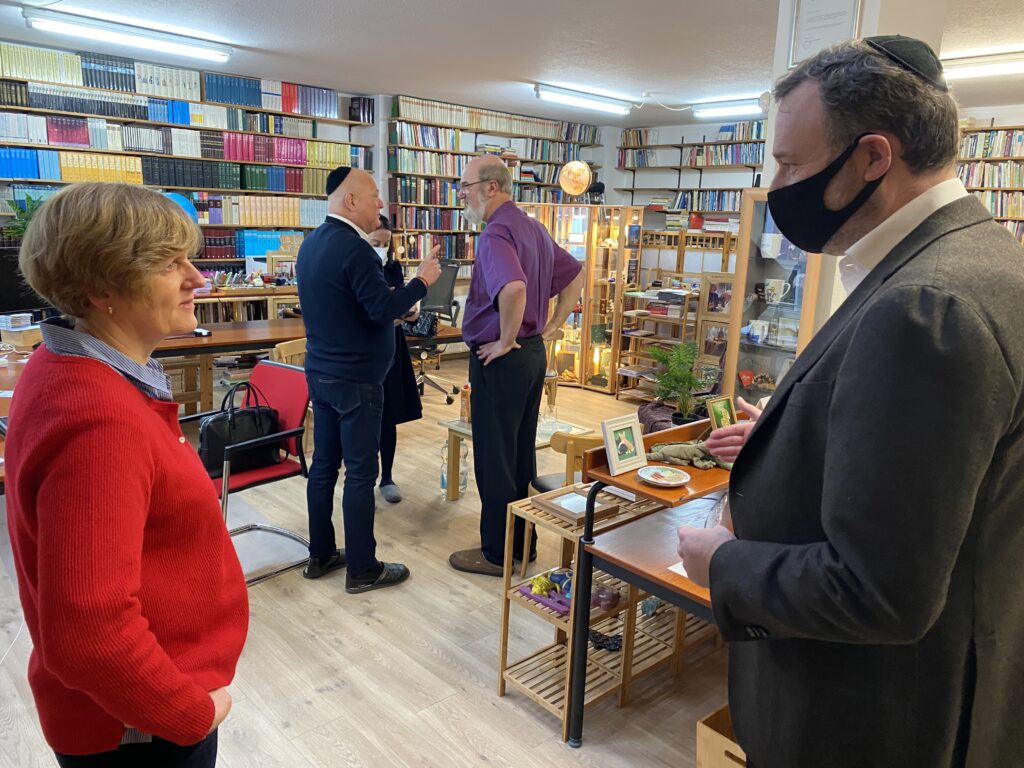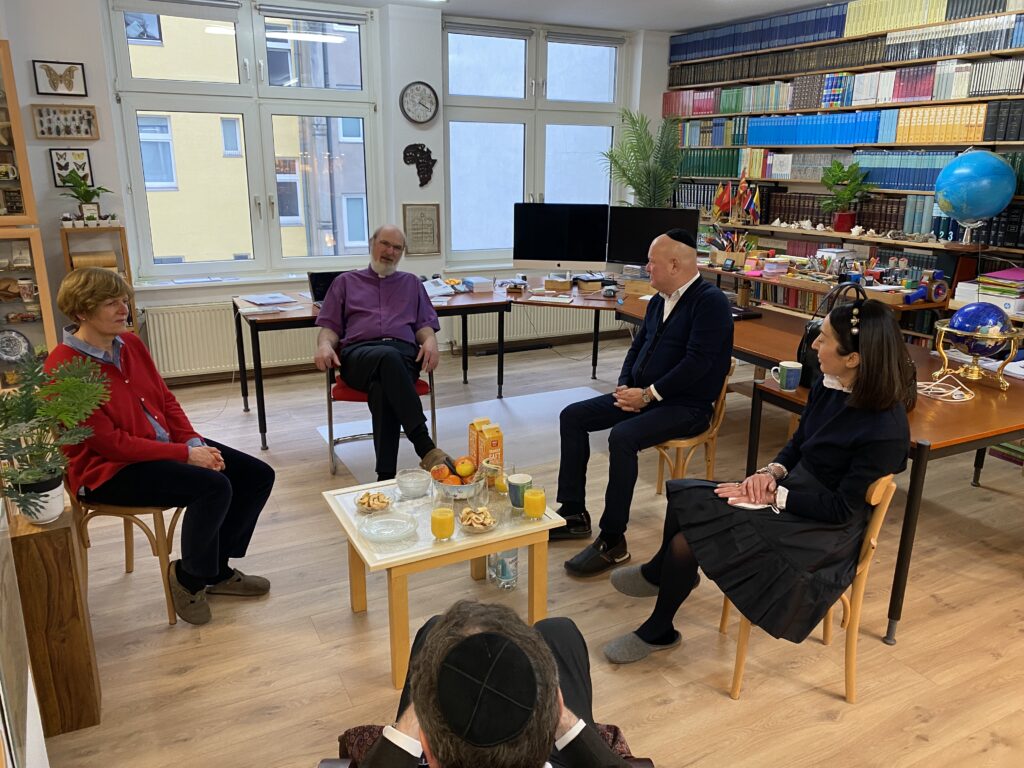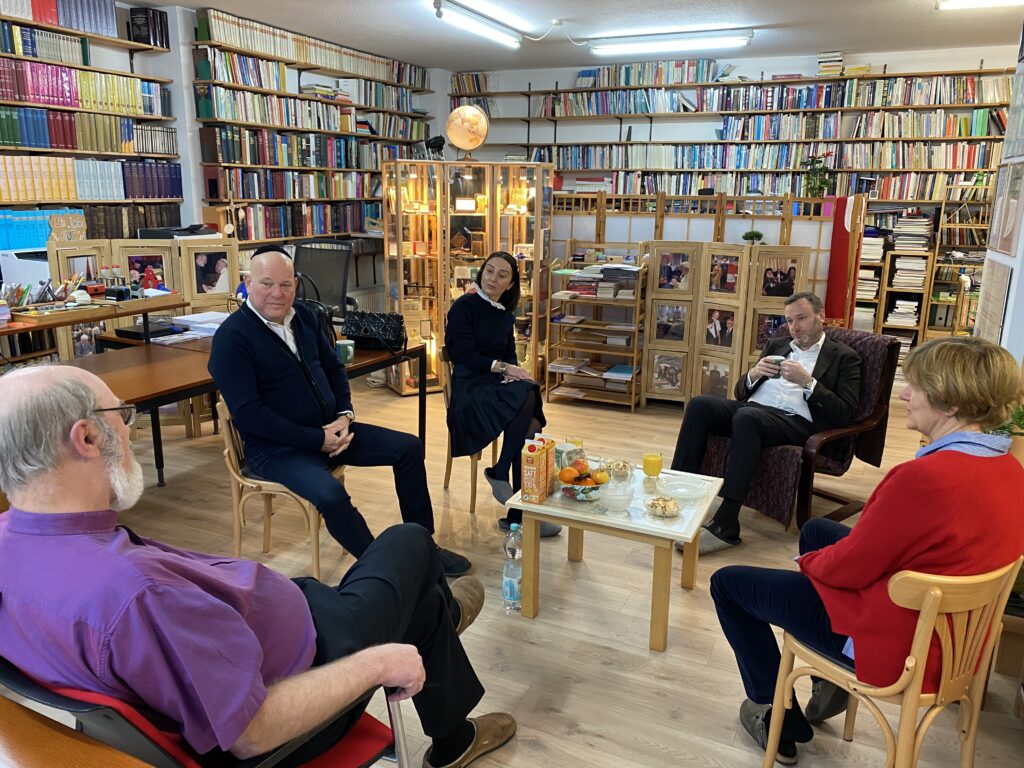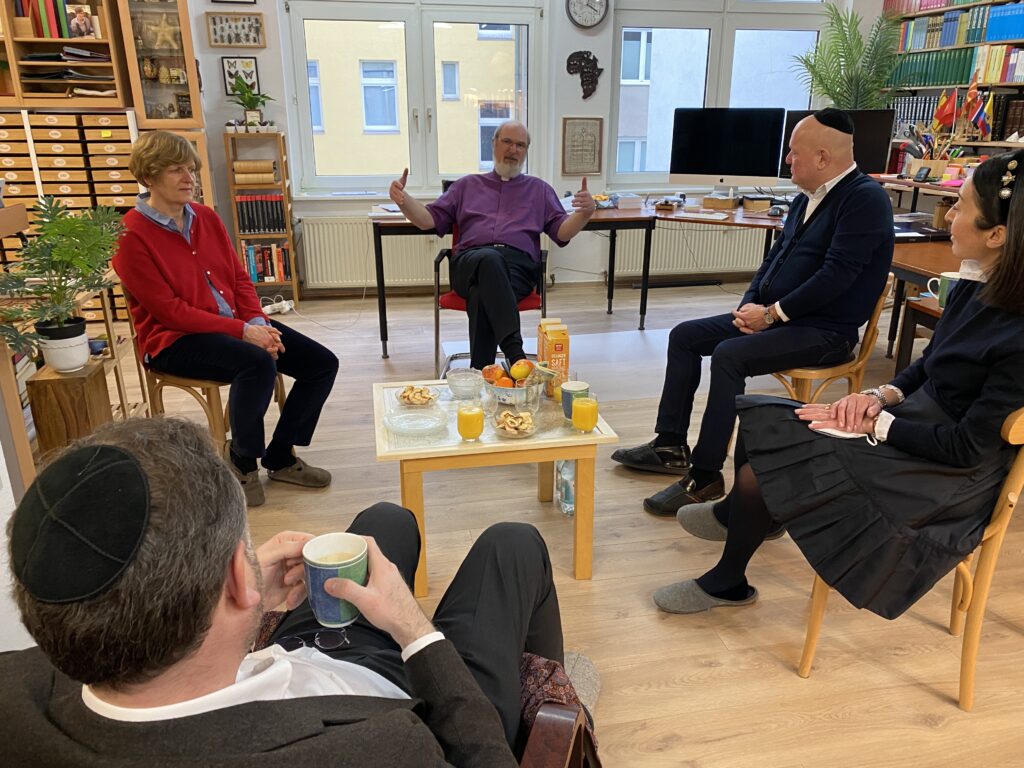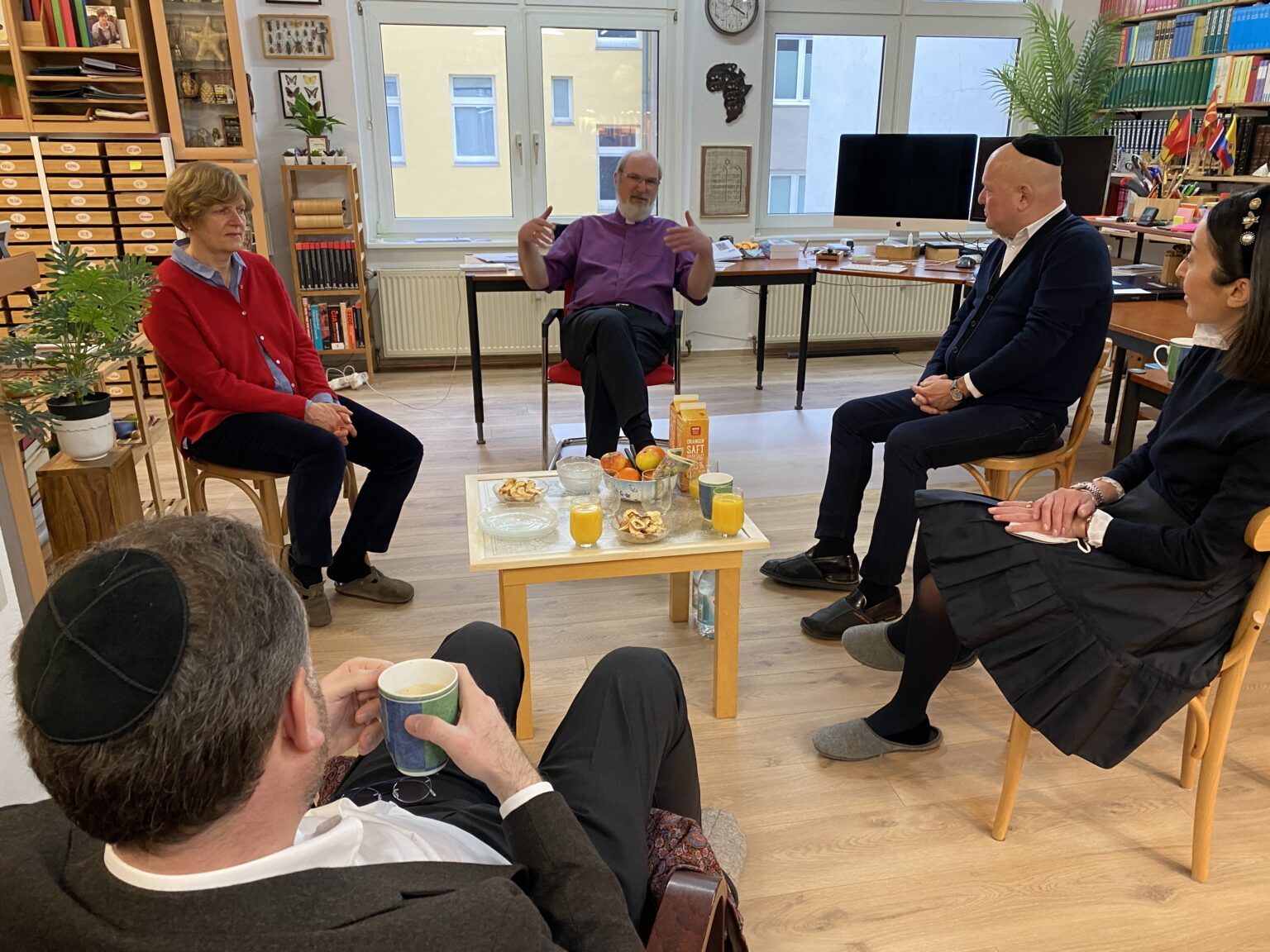A delegation from the Conference of European Rabbis (CER) visited the Secretary General of World Evangelical Alliance as well as Prof. Dr. Christine Schirrmacher as Spokeswoman on Islamic Affairs of WEA. The delegation informed itself on the ongoing dialogue between WEA and the global Jewish community through the THE INTERNATIONAL JEWISH COMMITTEE ON INTERRELIGIOUS CONSULTATIONS (IJCIC; https://ijcic.net) and the upcoming plans of the SG to visit Yad Vashem in Jerusalem to lay down a wreath and speak up against antisemitism
.
The delegation also discussed the involvement of Christine Schirrmacher in their research institute in Brussels, the Institute for the Freedom of Faith & Security in Europe Foundation (IFFSE), as it also circles around research on Muslim extremists in Europe mostly guided from countries outside Europe vs. a large peaceful community of Muslims in Europe, often called „European Islam“.
The Jewish delegation was made up of Gady Gronich, the CEO & Chief of Staff to the President of the Conference of European Rabbis, Shorena Mikava, the Head Of Legal Department bei Conference of European Rabbis and Bart Van de Kamp.
This meeting was a follow up of a meeting between Gady Gronich and Thomas Schirrmacher in Berlin when remembering the so-called Wannsee Conference 80 years ago, in which the Nazis discussed their plans to extinguish all Jews living in Europe.
The Conference of European Rabbis (CER) is the primary Orthodox rabbinical alliance in Europe. It unites more than 700 religious leaders of the mainstream synagogue communities in Europe. It was founded in 1956 on the initiative of British Chief Rabbi Sir Israel Brodie, in order to revive the vanquished Jewish communities on the European mainland. As a result of the CER union with the rabbinates of the stronger western European orthodox communities, the vast majority of mainstream communities throughout the continent retained Orthodox affiliation and rabbinical leadership (with the exception of Hungary and Sweden where non-Orthodox groups had a strong prior presence). Even as some major Western European communities were deliberating joining non-Orthodox movements in the post WWII period, the strong rabbinical alliance was successful in ensuring an Orthodox rabbinate and securing the continuity of the orthodox rite even where the larger part of the membership had unfortunately become secularized.
Home
Home
